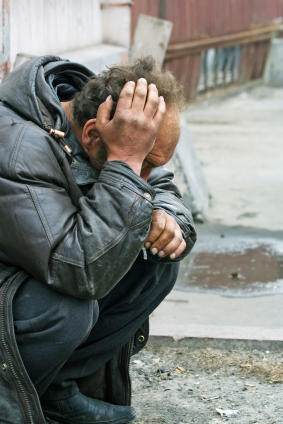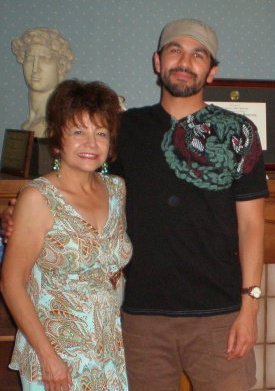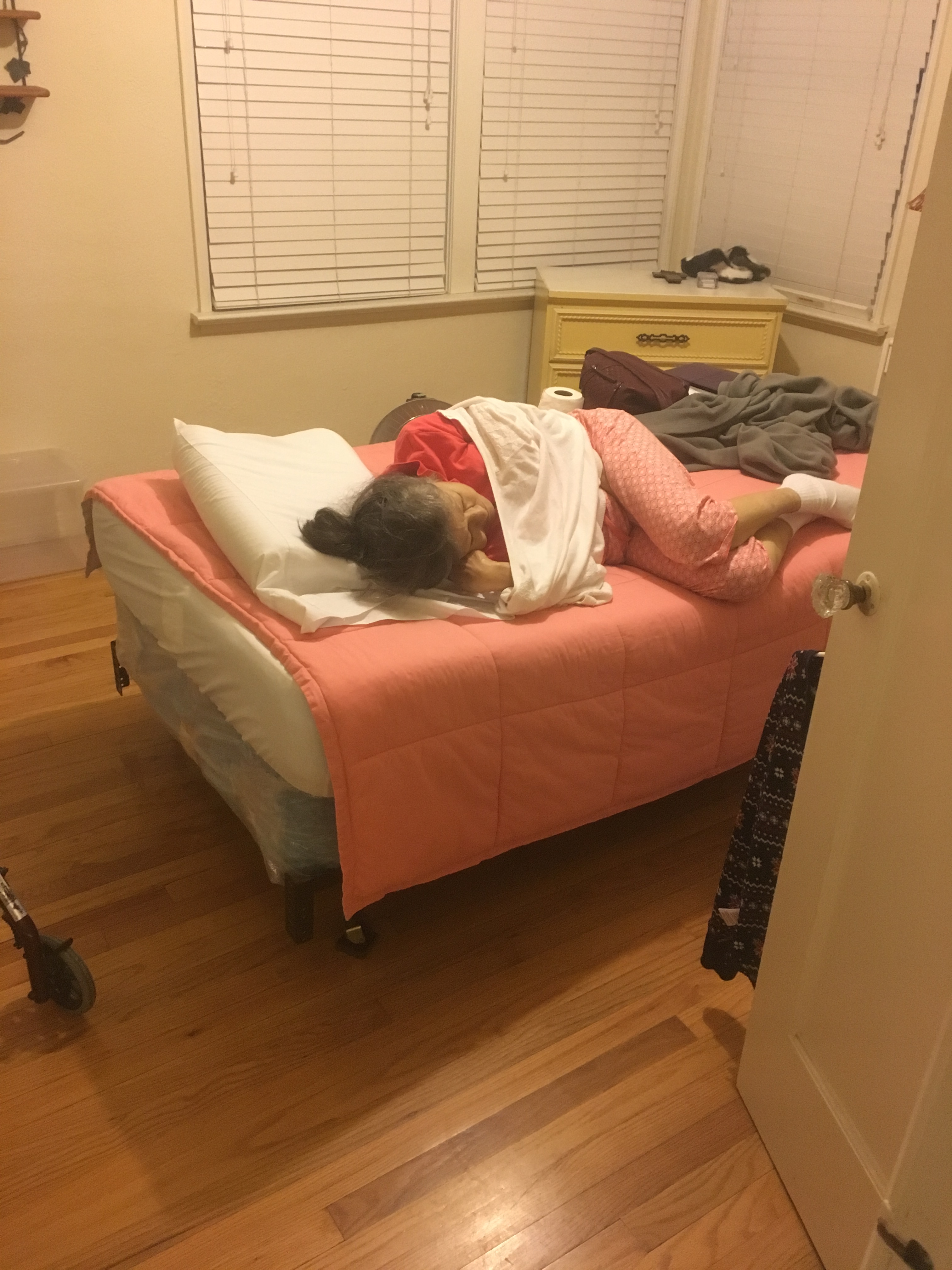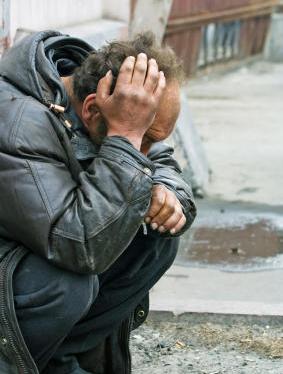Living with my mom this past month has me, again, thinking about the legal barriers involved in involuntary hospitalizations, the legal/medical notion of “gravely disabled” and even the corruption and complacency in the mental health system.
I say “again” because, for the last 6 to 7 years, my mom’s unwillingness and inability to seek treatment for her serious mental illness have, on numerous occasions, forced me and my sister to try and get her involuntarily hospitalized, or what’s known legally in California as a “51/50 hold.” As my family has learned, however, getting my mom 51/50ed AND treated (i.e. stabilized) is virtually impossible. For one, the legal requirement is ridiculously strict and various “checks and balances”, or roadblocks, are embedded throughout the entire process that limit the chances for successful treatment.
Legally speaking, a person must meet one of three criterion to be 51/50ed. A person must be suicidal, a serious threat to someone else or “gravely disabled.” If an authority figure, like a police officer or field clinician, deems a person meets one of these criteria, then the person is sent to an inpatient facility, often a county public hospital. Once there, the person is assessed by a psychiatrist. If deemed necessary, treatment with medication is attempted. If the person is non-compliant, as is usually the case with someone who has a serious mental illness (Why take the medicine if you don’t believe you’re really sick?), the person may be held for an extended period of time in order to treat him or her, with coercion if necessary.
At different stages, a judge decides how long and whether or not the person can be held or continue to be held against their will. So essentially, it’s possible for a judge to overrule BOTH the tending psychiatrist and the law enforcement officer or field clinician that had the person initially 51/50ed.
In my mom’s case, she has been 51/50ed at least four times in the last 6-7 years. Two of those times, she was found confused and incoherent on the side of a road in her car by police officers. At the time, she’d regularly drive off in her car in a psychotic episode, usually because she believed she was in grave danger. The two other times, she was failing to treat her diabetes adequately. Her glucose, consequently, rose above 400, which is considered life threatening. A field team that I called deemed her a threat to herself because she didn’t believe the readings, and was saying that she actually didn’t have diabetes at all.
Each time, however, and despite my pleas for them to treat her, she was released by the hospital in under 24 hours for no longer meeting the 51/50 criteria and without taking any psychiatric medication. It became obvious that hospital personnel were taking much of what my mom was saying during their questioning at face value. My mom can “hold it together” decently in short stints, when she has to, and she learned very quickly how to answer their questions.
More or less it goes like this: “Are you suicidal?” “No.”
“Are you hearing voices?” “No.”
“Will you begin treating your diabetes adequately?” “Yes.”
In a conversation I once had with the tending psychiatrist at San Francisco General Hospital, he explained to me that he wanted to keep and treat her, but based on the case he could build, he believed the judge would decide to release her. She’d be released in under 24hrs.
These 51/50s all happened within a three year time period, between 2007 and 2010. In this same period, my mom’s housing was becoming more precarious. She would regularly get into conflict with her neighbors and/or property managers over various things, like accusing her neighbors of spying on her and even breaking into her apartment.
Like clockwork, she would eventually be evicted, often times within months of finding a new place. Starting in 2010, my mom became effectively homeless, living in a car. I thought with certainty that her being homeless would strengthen the case for involuntary treatment, on the basis of her meeting the “gravely disabled” criterion. In fact, I was told by the psychiatrist at SFGH that if she was homeless, he would have had a stronger case to argue in front of the judge. At that time, my mom was staying with her brother, so had a home to return to. Her being literally homeless, however, wouldn’t matter much. In fact, it didn’t matter at all.
The California state code sounds pretty straight forward. It states a person is considered gravely disabled when “The person’s mental condition prevents him/her from being able to provide food, clothing and/or shelter…” In another section, it reads “This does not necessarily mean homeless, as a homeless person who is able to seek housing (even in a temporary shelter) when weather demands it would not fall into this category.” Each of these sections would be grossly distorted by authorities countless times.

My mom’s health and safety were in regular jeopardy when she was homeless. Her physical health suffered greatly, undermined as it was by the malnourishment, lack of rest and sleep and increased stress that accompanied her condition. She would at times show up at my home in San Francisco or my sister’s home in Fresno unannounced, weak, tired and distressed. We would let her stay to rest and often use the opportunity to call authorities to conduct a “welfare check” on my mom.
The police and ambulance would show up and, while my mom would be assessed by the medics, we would request that the police initiate a 51/50. While not in an obvious acute psychotic state, we’d explain to them her history of not treating her psychiatric condition, her prior 51/50s and current state of homelessness. Knowing the exact wording of the state code, we’d say explicitly that she was homeless and unable to care for herself adequately, due to her psychiatric illness. We’d try multiple times, hoping a different police officer would prove more helpful. However, as if reciting from the same department briefing, they all would say, almost verbatim, that to be considered “gravely disabled”, a person has to be lying down on the railroad tracks, in their own urine and defecation while naked!
Over time, it became clear to me in talking to various mental health personnel that this extreme interpretation of “gravely disabled” was actually the official view in the mental health field. Once, a field worker (a clinician) told me that as long as a homeless person is able to put a plan together, a plan consisting of where they are going to eat and sleep, that person wasn’t considered gravely disabled. Of course, my mom would lie and make it sound like she did have a plan. Her deteriorating state and past history of self-neglect weren’t factors whatsoever! The fact that she had an untreated serious mental illness was a non-factor! The fact that she was immensely suffering was a non-factor! Whether in the hospital or out, MH workers and law enforcement instead just took her at her word.
A rep with the California Department of Public Health would tell me when I challenged her interpretation of “gravely disabled” that “technically, a car is a roof over one’s head.”
I don’t doubt that the interpretation of “gravely disabled” has become more narrow and absurd as funding and resources, i.e. beds, for treatment centers have been increasingly cut. Yes, obviously there needs to be safeguards and civil rights protections. But as with my mom’s situation and countless others, the reality is this: People with serious mental illness are being unjustly neglected, unless they do something criminally and/or ghastly wrong. It should never have to reach that point.

At this point, having my mom assessed for a possible 51/50 isn’t even an option really. It has proven pointless and would just cause unnecessary stress for us both. I feel this way, despite seeing my mom on a daily basis continue to suffer from severe delusions and hallucinations. What she calls “spiritual attacks” are pretty constant and rare is the night that she is able to sleep soundly. She spends a good portion of the day and night rebuking and even swearing at the “evil voices” that torment her and that she blames for causing her pain in different parts of her body.
She even says that they try to make her trip and fall. This makes day to day tasks and business immensely difficult for her to accomplish. She’ll forget things that I say or ask her to do. She won’t remember to take her medicine regularly for various physical ailments, unless I remind her. And just about everything needs to be negotiated with her, from when to run errands to what we are going to have to eat, since she relies on the “good voices” to tell her what she should do. This is on top of her severe physical limitations that have developed, due to inadequate self-care, unstable housing and stress. My mom should be in a hospital or treatment center, until stabilized, so she has a better chance at piecing her life back together.



Your story is my exact story. My mom is in the same condition as your mother. She became “sick” when I was 21. I’m now 43. I’m her legal guardian. This is more than tough and the most unfair, devastating illness. Few people that you come in contact with understand “the struggle.” I would be elated and utterly thrilled if my mother would just shower herself and wear appropriate clothing. Some people expect great things from their parents. I’d just be happy with “the basics.” I know that you will completely understand what I mean. Do what you gotta do to care for your mother…..but PLEASE do NOT neglect yourself!
LikeLiked by 1 person
Thank you for the comment. I appreciate the support and understanding. I am hoping for a lucky break and trying my best not to let it adversely affect my health. I hope your situation improves significantly soon. Feel free to stay in touch.
LikeLike
I know its hard. My son is ill. He is doing the best ever with a monthly injectable medication. He does not function well enough memory-wise to take his medication if he had to take a pill every day. Your blog and care ARE VERY IMPORTANT. Keep it up if you can, though I know it is hard. It is such a shame that only a family member can see value in the person who is ill.
LikeLiked by 1 person
Thank you for your support. Good luck to you and your family.
LikeLike
Psychiatry is a scam. Period, end of the story. The lack of scientific validity of DSM labels was denounced by the then Director of the National Institute of Mental Health in April 2013, prior to the release of DSM-5 https://www.nimh.nih.gov/about/director/2013/transforming-diagnosis.shtml . If you want to help your mother, go to http://www.madinamerica.com/ and connect with people who have overcome their personal struggles by saying now to psychiatry. Forcing people to this scam is one of the most inhumane things anybody can do to a loved one.
LikeLiked by 1 person
I’m aware of Mad in America. I agree that they are an important voice.
LikeLike